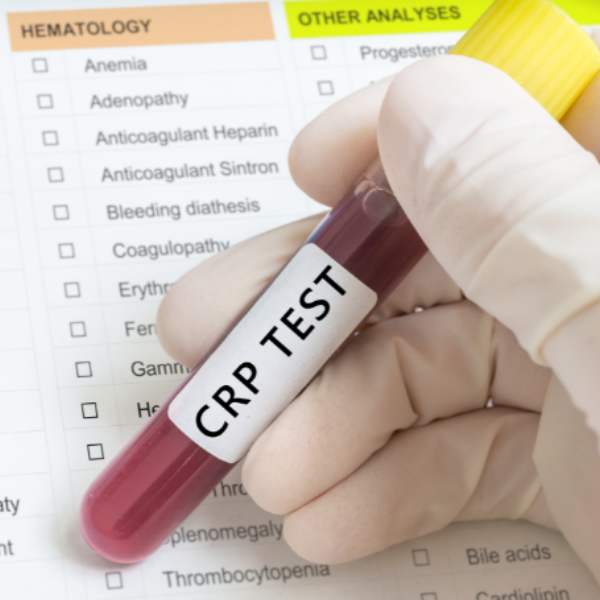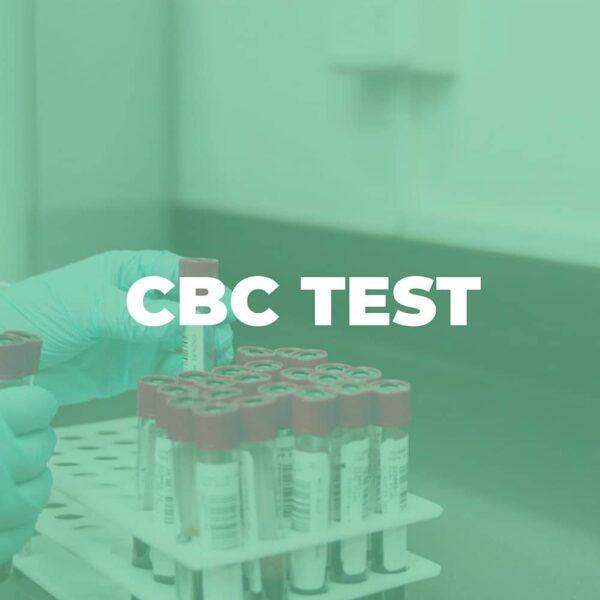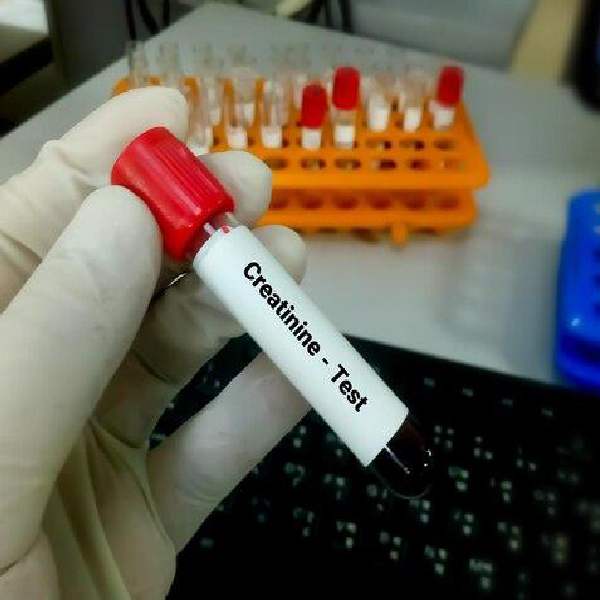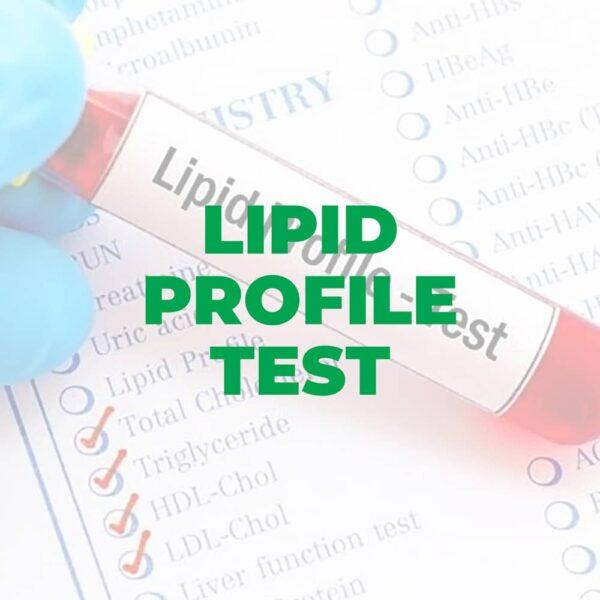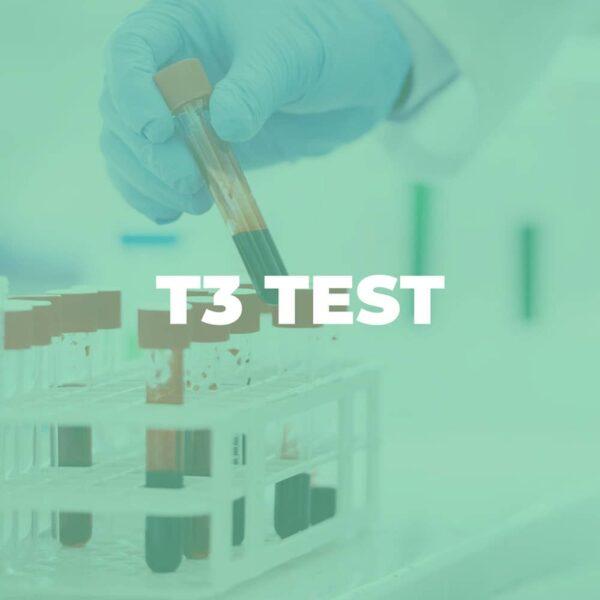Preparation for CRP Blood Test
There is no special preparation required for a C-reactive protein test, but there are a few simple things you can do to make the test more comfortable and to ensure accurate results:
- Avoid strenuous exercise for 24 hours before the C R P test, as this can increase C-reactive protein levels.
- Inform your healthcare provider of all medications you are currently taking.
Get Appointment
Procedure for CRP Blood Test
The CRP Blood Test procedure is uncomplicated. A healthcare professional will gather a blood sample from a vein in your arm, and the sample will undergo testing in a laboratory.
Understanding CRP Test Parameters
C-reactive protein levels can vary depending on your age, sex, and overall health. The normal range for C R P levels is less than 10 mg/L. If your C-reactive protein level is above 10 mg/L, it may indicate inflammation. In short, crp test positive means, more severe inflammation in the body.
GET IN TOUCH WITH BIOCITY HEALTHCARE EXPERTS!
Know all about CRP Blood Test with a FREE Diet Consultation. Contact Our Team Today!
Contact UsCRP Test Results Assessment
If your C R P level is high, your doctor will collaborate with you to identify the cause of inflammation and create a personalised treatment plan. This plan may involve medications, lifestyle adjustments, or a combination of both.
Limitations of CRP Test
While the CRP blood test is a valuable diagnostic tool, it is not without limitations. Understanding these can help you interpret results accurately and avoid unnecessary concerns:
1. Non-Specificity of Results
CRP tests indicate the presence of inflammation but do not pinpoint its exact cause.
- High CRP levels could result from infections, autoimmune diseases, or even minor injuries.
- Additional tests or medical evaluations are required to identify the root cause of inflammation.
2. Variability in CRP Levels
CRP levels can fluctuate due to several factors, including lifestyle, age, and pre-existing health conditions.
- Temporary inflammation from exercise, smoking, or even recent vaccinations can cause elevated CRP levels.
- People with chronic inflammatory conditions may have persistently high CRP levels, which could overshadow other acute health issues.
Patients should avoid strenuous activity or other known inflammation triggers before testing to ensure accurate results.
3. Lack of Insight into Severity
CRP tests do not always correlate the level of inflammation with its severity.
- For example, some minor infections might cause a significant rise in CRP, while serious conditions like cancer may show a moderate increase.
4. False-Negative or Mild Elevations
Certain conditions may not elevate CRP significantly, leading to a false sense of reassurance.
- Conditions like lupus or fibromyalgia can have minimal impact on CRP despite severe symptoms.
- Some medications, such as statins or anti-inflammatory drugs, might reduce CRP levels, masking inflammation.
5. Limited Use in Specific Diagnoses
CRP tests are less effective for diagnosing localized conditions that do not produce systemic inflammation.
- For instance, early-stage localized infections or certain autoimmune diseases might not elevate CRP levels significantly.
Check Out Our Full Body Checkup Packages Including CRP Test Today.
What Patients Can Expect After a High CRP Levels
A high CRP reading is often the first step in uncovering potential health issues. However, it’s important to understand that this result is not a standalone diagnosis. Here’s what typically happens next:
1. Follow-Up Testing to Identify the Cause
Since CRP tests only signal the presence of inflammation and not its source, doctors often recommend further investigations to pinpoint the underlying condition.
Additional Blood Tests:
Tests such as the erythrocyte sedimentation rate (ESR), complete blood count (CBC), or tests for specific antibodies (e.g., rheumatoid factor, ANA) may be ordered to diagnose autoimmune diseases or infections.Imaging Tests:
In cases where physical symptoms suggest a localized issue, imaging techniques like X-rays, MRIs, or ultrasounds can help locate the source of inflammation (e.g., in joints, organs, or tissues).Specialized Tests:
If an infection is suspected, blood cultures or urine tests may be performed to identify specific pathogens. For cardiovascular risk, a high-sensitivity CRP (hs-CRP) test may be conducted for more precise results.
2. Treatment Options Based on Diagnosis
Once the underlying cause of the elevated CRP is determined, treatment is tailored to address the specific condition.
Infections:
Antibiotics, antivirals, or antifungal medications may be prescribed to clear up bacterial, viral, or fungal infections.Autoimmune Diseases:
Conditions like rheumatoid arthritis, lupus, or inflammatory bowel disease might require anti-inflammatory medications, corticosteroids, or immunosuppressive therapies.Lifestyle Changes for Cardiovascular Risks:
If a high CRP is linked to cardiovascular risk factors, doctors often recommend lifestyle modifications, such as a heart-healthy diet, regular exercise, and smoking cessation. Statins may also be prescribed to lower cholesterol and reduce inflammation.
3. Monitoring and Long-Term Management
For chronic conditions, CRP levels may be monitored over time to assess the effectiveness of treatments and detect flare-ups.
Chronic Inflammatory Conditions:
Patients with diseases like Crohn’s disease, rheumatoid arthritis, or chronic infections may need regular CRP tests to ensure inflammation is under control.Preventative Measures:
If a high CRP is attributed to lifestyle factors, long-term changes in diet, exercise, and stress management can help lower levels and reduce future health risks.
4. Personalized Care Plan
Doctors often create a care plan that combines multiple approaches to improve the patient’s overall health and address the root cause of inflammation.
Multidisciplinary Approach:
Specialists such as rheumatologists, cardiologists, or infectious disease experts may be involved depending on the suspected condition.Patient Education:
Patients are educated about their condition, the significance of CRP levels, and how to recognize early warning signs of complications or flare-ups.
FAQ's on CRP Test
The CRP blood test is used to measure the level of C-reactive protein (CRP) in your blood. C R P is a protein produced by the liver in response to inflammation. A high C R P level may indicate that you have an infection, inflammatory disease, or other medical condition.
You should have a CRP blood test as often as your doctor recommends, depending on your individual circumstances. For example, if you have a chronic inflammatory disease, your doctor may recommend that you have a C-reactive protein test regularly to monitor your condition.
A C-reactive protein test is a simple blood test. A healthcare professional will take a blood sample from a vein in your arm and send it to a laboratory for testing.
Normal C R P levels vary depending on your age and gender. The following are the general reference C-reactive protein normal ranges:
- Newborns: 0.2 to 9.3 milligrams per litre (mg/L)
- Infants and toddlers: 0.2 to 10.0 mg/L
- Children and adolescents: 0.2 to 5.0 mg/L
- Adults: 0.2 to 10.0 mg/L
A number of things can cause your C R P levels to be high or low, including:
- Infections
- Inflammatory diseases, such as arthritis and lupus
- Cancer
- Heart disease
- Kidney disease
- Pregnancy
- Certain medications
A high CRP level or CRP test positive means that you have an infection, inflammatory disease, or other medical condition. However, it is important to note that CRP levels can also be elevated due to other factors, such as stress, exercise, and smoking.
Your healthcare provider will interpret your CRP test results along with your other medical history and symptoms to make a diagnosis and recommend treatment.
C-reactive protein blood test results typically take several days to a week to become available.
No, you cannot do a CRP test at home. C-reactive protein tests must be performed in a laboratory.

